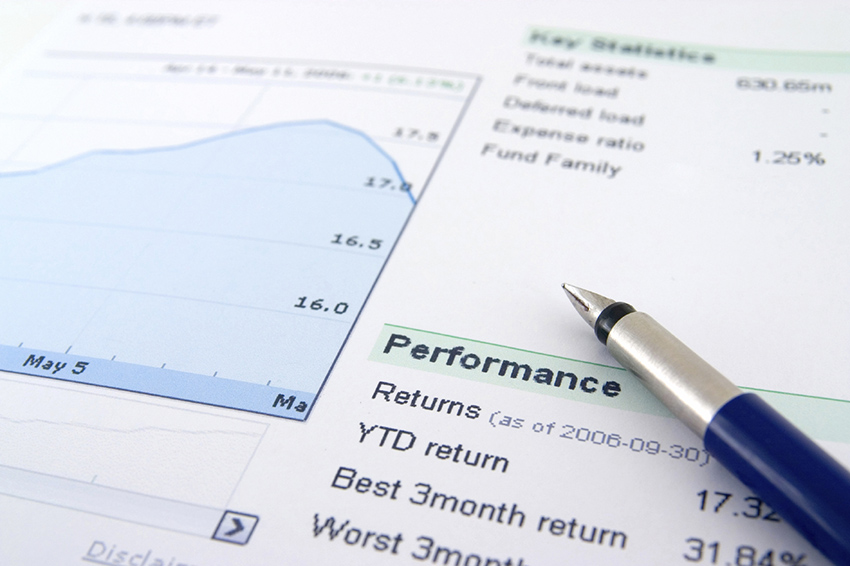
Grow Your Wealth
People invest for many reasons: to grow their wealth over time, fund a comfortable retirement, or build a lasting legacy for their heirs or favorite causes. Whether you’re seeking to preserve your standard of living throughout retirement or planning to fund causes beyond your lifetime, finding an effective strategy can be challenging.
The financial industry is awash with recommendations on how to build and protect wealth. Some focus on income-producing assets, like dividend-paying stocks and bonds. Others emphasize products like mutual funds and annuities. But not all approaches are created equal. Many investors adhere to strategies they don’t fully understand, often based on advice that doesn’t prioritize their individual needs.
At Fisher Investments, we believe in transparency and investor education. Understanding your investment options and how they fit your goals is essential for making informed decisions and building wealth. We want you to understand what you are investing in and how your strategy aligns with your long-term objectives.
-
Asset Types
-
Asset Allocation
-
Investment Income
-
Investment Income Taxes

Asset Types
We find that novice and seasoned investors alike may not always fully understand the differences in asset types available to them. Dive into the basics of various asset types and find out why we think some options are more appropriate than others depending on your goals.

Asset Allocation
At Fisher Investments, we believe that asset allocation—the mix of stocks, bonds, cash and other securities in your portfolio—is the greatest determinant of your portfolio’s returns. Your asset allocation should reflect your wealth-building goals as well as your current outlook on markets. Learn more about the importance of asset allocation.

Investment Income
Stock dividends and interest from bonds are two of the most commonly known types of investment income, but we believe investors should think about investment income more broadly. Learn about a more comprehensive investment income approach.

Investment Income Taxes
How you generate investment income can often have big implications on taxes you may pay. Learn more about how you can potentially lower your tax obligations.

What Types of Investment Options Are Available?
When you buy a stock, what exactly are you purchasing? What are the differences between mutual funds and exchange-traded funds (ETFs)?
It’s surprising how many “seasoned” investors have incomplete—or even incorrect—answers to some of these fundamental investing questions. Stocks, bonds, annuities, mutual funds, etc.—every asset type works a little differently.
At Fisher Investments, we find many investors don’t understand how various assets actually work and overlook the risks associated with them. Before you invest, we can help you understand the difference between various asset types to help you make more-informed financial decisions.

Should Your Asset Allocation Change Over Time?
Once you have a firm grasp on different asset types, you can better understand how to employ those investments in your strategy. We believe the number-one driver of an investor’s long-term success is having the appropriate asset allocation—the mix of stocks, bonds, cash and other securities in an overall investment strategy.
A common view in our industry is that asset allocation should change as you age. Proponents of this view believe you should increasingly shift your investments to “safer” assets such as bonds the older you get.
We disagree.
We believe this approach could increase the risk of running out of money in your later years. Investors commonly underestimate their needs later in life, including how long they might need their assets to last. If your goals require investment growth, then you likely want to have a healthy portion of your investments in stocks because they have historically had superior long-term growth over other asset classes.
At Fisher Investments, we believe your asset allocation shouldn’t change often. We think your asset allocation should likely only change if your goals or circumstances shift materially. For example, if you decide to retire earlier than previously expected or need to take larger annual withdrawals than you thought, you’ll want to reassess if your asset allocation continues to suit your needs. If not, adjust accordingly.
Learn more about how your asset allocation can impact your financial future below.

How Can Your Investments Generate Income?
Many investors target income-producing assets, such as bonds and high-dividend-paying stocks, as a core part of their investing strategy—particularly when approaching or already in retirement. While income is certainly an important consideration, we think focusing solely on income when making financial decisions can be a mistake.
Dividends and interest are two different things. Dividends are a return of capital, whereas interest income is a return on capital—an important distinction.
Dividends are voluntary payments to shareholders, while interest is the cost an entity incurs when borrowing money. Companies can cut or suspend dividends when they need to. This means that investors relying solely on dividends to pay the bills can be left empty-handed if those companies see periods of distress.
Additionally, focusing on dividends alone can leave your portfolio overconcentrated in certain areas of the market. For example, high-dividend-paying companies are usually mature businesses that don’t reinvest as much of their profits in future growth opportunities. Depending on where you are in a market cycle, these types of companies may have lower return potential.
At Fisher Investments, we believe looking at total return is what matters most. This means looking at your dividend return and the growth of the underlying asset (i.e., price return). By taking a more comprehensive approach, you can potentially increase your overall returns.
Investment income is an important part of most retirees’ plans. We believe you don’t have to sacrifice income to have a flexible investment strategy. We recommend using an approach we call “homegrown dividends.” This involves periodically selling stocks to generate cash flow, which can complement any dividend or interest income your strategy may produce.

What Are Some Investment Tax Considerations?
Your strategy for producing investment income can also have a big influence on your taxes. Different asset types can have different tax consequences. For example, the interest from corporate bonds tends to be taxed at your individual income rate, but stock sales often benefit from lower capital gains rates, depending on how long you have held the security.
Dividends may be taxed at varying rates, which often are lower than ordinary income tax rates depending on the type of investment and your income tax bracket. Tax implications can also vary depending on the types of investment accounts you have.
Insights & Media
-
All
-
Personal Wealth Management
-
Institutional Investing
-
Weekly Wrap-Up
Fisher Investments Reviews: Last Week in Markets—December 8 - December 12
2025-12-15
-
Expert Commentary
3 Things You Need to Know This Week | Central Banks, US Jobs, Japan Gov. Bond Yields
2025-12-15
-
Expert Commentary
This Week in Review | Fed Rate Cut, China Trade Balance, Reshoring Manufacturing
2025-12-13
-
In The News
A Lesson on Financial Risk, Leveraged Lending Edition
2025-12-11

Learn More
Learn why 190,000 clients trust us to manage their money and how Fisher Investments and its affiliates may be able to help you achieve your financial goals.
As of 9/30/2025
New to Fisher? Call Us.
Contact Us Today


